Related Research Articles
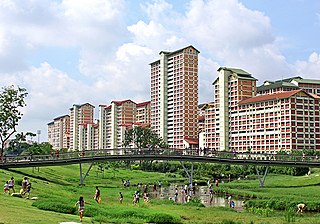
Public housing is a form of housing tenure in which the property is usually owned by a government authority,either central or local. Although the common goal of public housing is to provide affordable housing,the details,terminology,definitions of poverty,and other criteria for allocation vary within different contexts. Within the OECD,social housing represents an average of 7% of national housing stock (2020),ranging from ~34% in the Netherlands to less than 1% in Colombia.

Tutoring is private academic support,usually provided by an expert teacher;someone with deep knowledge or defined expertise in a particular subject or set of subjects.

Cha chaan teng,often called a Hong Kong-style cafe or diner in English,is a type of restaurant that originated in Hong Kong. Cha chaan teng are commonly found in Hong Kong,Macau,and parts of Guangdong. Due to the waves of mass migrations from Hong Kong in the 1980s,they are now established in major Chinese communities in Western countries such as Australia,Canada,the United Kingdom,and the United States. Likened to a greasy spoon cafe or an American diner,cha chaan tengs are known for eclectic and affordable menus,which include dishes from Hong Kong cuisine and Hong Kong-style Western cuisine. They draw comparisons to Western cafés due to their casual settings,as well as menus revolving around coffee and tea.
Inclusionary zoning (IZ),also known as inclusionary housing,refers to municipal and county planning ordinances that require or provide incentives when a given percentage of units in a new housing development be affordable by people with low to moderate incomes. The term inclusionary zoning indicates that these ordinances seek to counter exclusionary zoning practices,which exclude low-cost housing from a municipality through the zoning code. Non-profit affordable housing developers build 100% of their units as affordable,but need significant taxpayer subsidies for this model to work. Inclusionary zoning allows municipalities to have new affordable housing constructed without taxpayer subsidies. In order to encourage for-profit developers to build projects that include affordable units,cities often allow developers to build more total units than their zoning laws currently allow so that there will be enough profit generating market-rate units to offset the losses from the below market-rate units and still allow the project to be financially feasible. Inclusionary zoning can be mandatory or voluntary,though the great majority of units have been built as a result of mandatory programmes. There are variations among the set-aside requirements,affordability levels,and length of time the unit is deed-restricted as affordable housing.
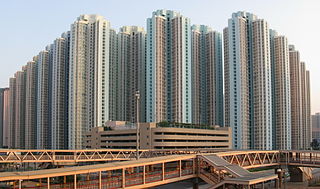
The Home Ownership Scheme (HOS) is a subsidised-sale public housing programme managed by the Hong Kong Housing Authority. It was instituted in the late 1970s as part of the government policy for public housing with two aims –to encourage better-off tenants of rental flats to vacate those flats for re-allocation to families in greater housing need;and also to provide an opportunity for home ownership to families unable to afford to buy in the private sector.

Public housing in Hong Kong is a set of mass housing programmes through which the Government of Hong Kong provides affordable housing for lower-income residents. It is a major component of housing in Hong Kong,with nearly half of the population now residing in some form of public housing. The public housing policy dates to 1954,after a fire in Shek Kip Mei destroyed thousands of shanty homes and prompted the government to begin constructing homes for the poor.
The Sandwich Class Housing Scheme was a scheme from the Hong Kong Housing Society offering apartments to middle-income families,i.e. sandwich class,at concessionary prices during the 1990s in Hong Kong. The purchases were subject to a five-year resale restriction. The first development,Tivoli Garden,was completed in 1995,and was followed by 12 other developments. In total,more than 12,000 units were offered.
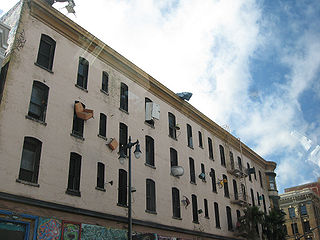
Single room occupancy is a form of housing that is typically aimed at residents with low or minimal incomes,or single adults who like a minimalist lifestyle,who rent small,furnished single rooms with a bed,chair,and sometimes a small desk. SRO units are rented out as permanent residence and/or primary residence to individuals,within a multi-tenant building where tenants share a kitchen,toilets or bathrooms. SRO units range from 7 to 13 square metres. In some instances,contemporary units may have a small refrigerator,microwave,or sink.

The Millionaire Next Door:The Surprising Secrets of America's Wealthy (ISBN 0-671-01520-6) is a 1996 book by Thomas J. Stanley and William D. Danko. The book is a compilation of research done by the two authors in the profiles of American millionaires.

Workforce housing is a term that is increasingly used by planners,government,and organizations concerned with housing policy or advocacy. It is gaining cachet with realtors,developers and lenders. Workforce housing can refer to any form of housing,including ownership of single or multi-family homes,as well as occupation of rental units. Workforce housing is generally understood to mean affordable housing for households with earned income that is insufficient to secure quality housing in reasonable proximity to the workplace.

The sandwich generation is a group of middle-aged adults who care for both their aging parents and their own children. It is not a specific generation or cohort in the sense of the Greatest Generation or the Baby boomer generation,but a phenomenon that can affect anyone whose parents and children need support at the same time.
New immigrants in Hong Kong generally refers to migrants from mainland China (Mainlanders). Despite its literal meaning,the term is rarely used to describe newly arrived immigrants from regions other than Mainland China. Since the transfer of sovereignty over Hong Kong to The People's Republic of China,increasing numbers of migrants from mainland China have been coming to the territory.
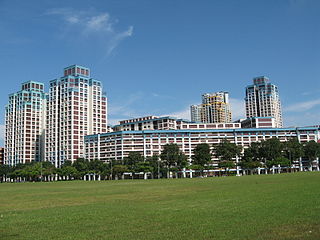
Public housing in Singapore is subsidised,built and managed by the Government of Singapore thorugh the Housing and Development Board (HDB). The majority of the residential housing developments in Singapore are publicly governed and developed,and home to approximately 80% of the resident population. These flats are located in housing estates,which are self-contained satellite towns with well-maintained schools,supermarkets,malls,community hospitals,clinics,hawker centres and sports and recreational facilities. Every housing estate includes Mass Rapid Transit (MRT) stations and bus stops that link residents to other parts of the city-state. Some estates are also complemented by smaller LRT stations which act as a feeder service to the MRT.

Housing,or more generally,living spaces,refers to the construction and assigned usage of houses or buildings individually or collectively,for the purpose of shelter. Housing is a basic human need,and it plays a critical role in shaping the quality of life for individuals,families,and communities.
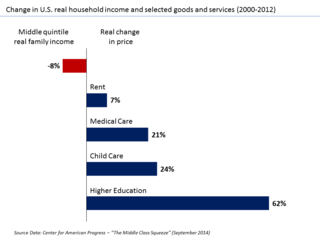
The middle-class squeeze refers to negative trends in the standard of living and other conditions of the middle class of the population. Increases in wages fail to keep up with inflation for middle-income earners,leading to a relative decline in real wages,while at the same time,the phenomenon fails to have a similar effect on the top wage earners. People belonging to the middle class find that inflation in consumer goods and the housing market prevent them from maintaining a middle-class lifestyle,undermining aspirations of upward mobility.

Ever since the 1997 Asian financial crisis,property markets have greatly developed through the years. Asian governments have improved the financial stance associated with the structure of housing finance,allowing more access to a diverse range of mortgages products.
My Home Purchase Plan is one of the public housing initiatives of Hong Kong. This plan enables eligible citizens to purchase homes by way of "rent-and-buy". The Plan aims to provide assistance to potential sandwich class home buyers who are able to repay mortgages in the long term but currently do not have enough savings for the down payment. This plan is introduced by the Chief Executive of Hong Kong in the Policy address of Hong Kong 2010. The implementation of plan,that is the first 5000 flats under the plan is expected to be ready for sell in 2014.
Transitional housing is temporary housing for certain segments of the homeless population,including working homeless people who are earning too little money to afford long-term housing. Transitional housing is set up to transition residents into permanent,affordable housing. It is not in an emergency homeless shelter,but usually a room or apartment in a residence with support services.

Rooftop slum or penthouse slum generally refers to illegal housing on the rooftops of apartment buildings. In Hong Kong,some people are unable to afford traditional apartments and are forced to wait years for affordable public housing. They therefore live in squatted shacks on top of buildings. According to the Hong Kong population census,there were 47,091 rooftop dwellers in 2011 and this number is likely to have dropped as working class areas are redeveloped.

The Moonlight Clan is a large group of people who expend their entire salary before the end of each month. The term is derived from a lunar cycle. While yue guang translates directly to "moonlight",it is also a pun derived from the combination of its individual words,yue and guang. Zu refers to a group of people who shares this characteristic. In the United States,a comparable notion is referred to as "living paycheck to paycheck". "Moonlight clan" is a relatively new Chinese neologism to describe young workers who spend their salaries faster than they earn it. The Moonlite are generally younger generations. They are different from their parents' diligent and thrifty consumption concepts. To chase new trends and have fun,they don't care about the cost as long as they like. Material life is what they yearn for,but also the motivation to earn money. The older generation believes that "saving is more significant than spending",and they are very upset about their behavior;however,their motto is "spending can lead to make more money". The Moonlite are companies' favorite group of consumers,since they have strong purchasing power from desires;more importantly,they have the ability to make money and have money to spend.
References
- ↑ Lee, James (1994). "Affordability, Home Ownership and the Middle Class Housing Crisis in Hong Kong". Policy & Politics. 22 (3): 179–189. doi:10.1332/030557394782453690.
- 1 2 Tan, Ooi Boon (2021-03-21). "Why the sandwich class feels the money squeeze" . The Straits Times. ISSN 0585-3923 . Retrieved 2021-09-30.